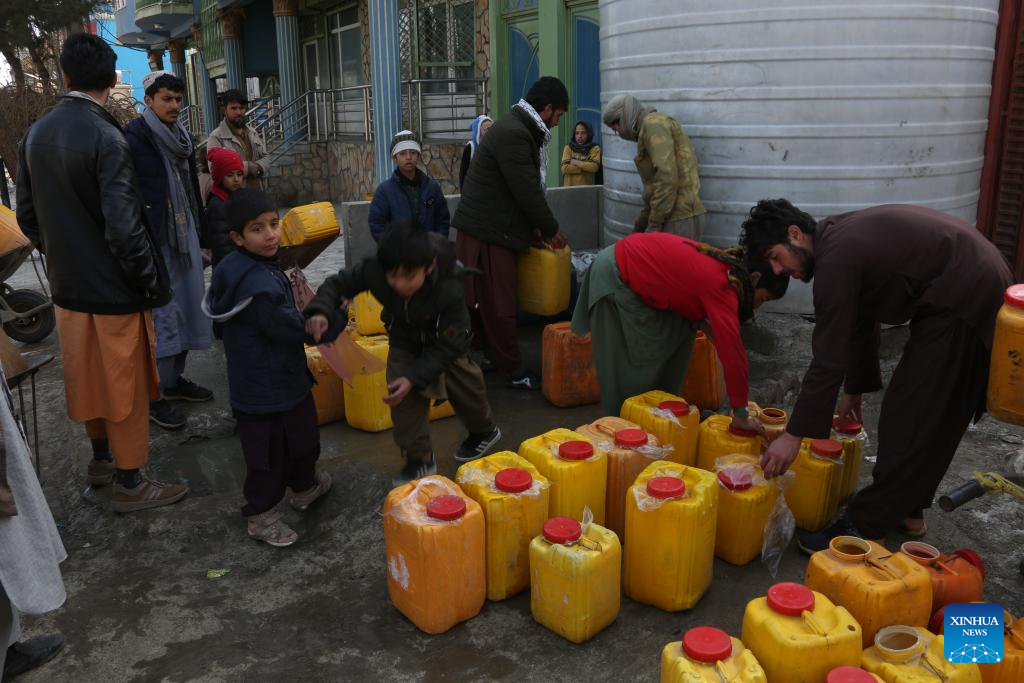
People get water in Kabul, the capital of Afghanistan, Feb. 8, 2024. Climate change and frequent years of drought have deprived 21 million Afghans, almost half of Afghanistan's population, of access to potable water, Deputy Head of National Environment Program Agency (NEPA) Abdul Salam Haqqani said.
Afghanistan has been experiencing years of drought, which led to a recession of underground water including in the national capital Kabul, as major parts of some 6 million people of the city have been facing extreme water scarcity. (Photo by Saifurahman Safi/Xinhua)
KABUL, Feb. 7 (Xinhua) -- Climate change and frequent years of drought have deprived 21 million Afghans, almost half of Afghanistan's population, of access to potable water, Deputy Head of National Environment Program Agency (NEPA) Abdul Salam Haqqani said.
"Twenty-one million people, which is half of the population of the country, face a lack of water and do not have access to drinking water," local television channel TOLOnews quoted Haqqani on Wednesday as saying.
Haqqani also noted that climate change has also destroyed 3 percent of the war-torn country's forests and decreased the rainfall by 37 percent.
Afghanistan has been experiencing years of drought, which led to a recession of underground water including in the national capital Kabul, as major parts of some 6 million people of the city have been facing extreme water scarcity.
In the meantime, Rohullah Amin, head of the climate change department of NEPA, according to the TOlOnews, has said that coping with the problems arising out of climate change requires an estimated 20 billion U.S. dollars.
Similarly, Afghanistan's Deputy Minister for Higher Education Lutfullah Khairkhwah has revealed that a global conference on climate change with the participation of Afghan and international experts will be held at Nangarhar University in the eastern city of Jalalabad in the coming days. ■
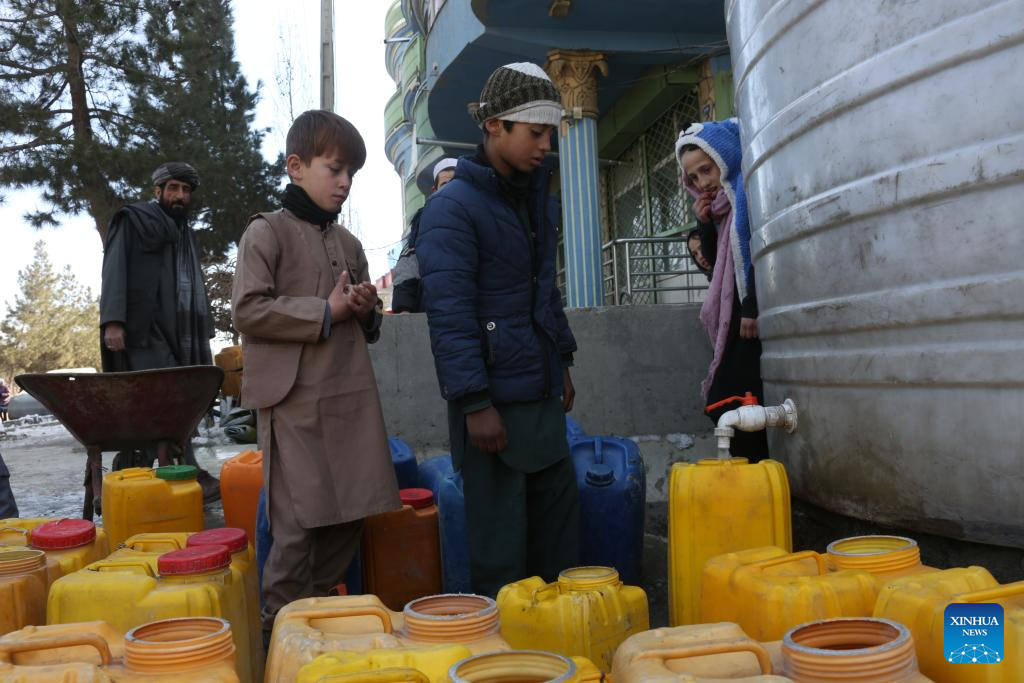
Afghan children get water from a water tank in Kabul, the capital of Afghanistan, Feb. 8, 2024. Climate change and frequent years of drought have deprived 21 million Afghans, almost half of Afghanistan's population, of access to potable water, Deputy Head of National Environment Program Agency (NEPA) Abdul Salam Haqqani said.
Afghanistan has been experiencing years of drought, which led to a recession of underground water including in the national capital Kabul, as major parts of some 6 million people of the city have been facing extreme water scarcity. (Photo by Saifurahman Safi/Xinhua)
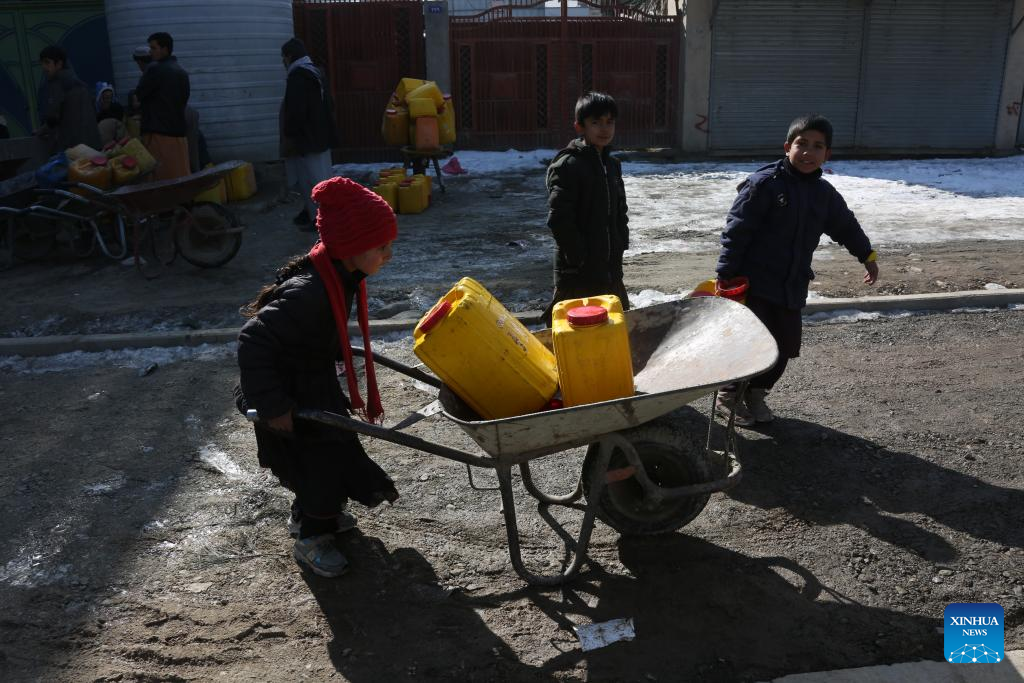
Afghan children fetch water in Kabul, the capital of Afghanistan, Feb. 8, 2024. Climate change and frequent years of drought have deprived 21 million Afghans, almost half of Afghanistan's population, of access to potable water, Deputy Head of National Environment Program Agency (NEPA) Abdul Salam Haqqani said.
Afghanistan has been experiencing years of drought, which led to a recession of underground water including in the national capital Kabul, as major parts of some 6 million people of the city have been facing extreme water scarcity. (Photo by Saifurahman Safi/Xinhua)
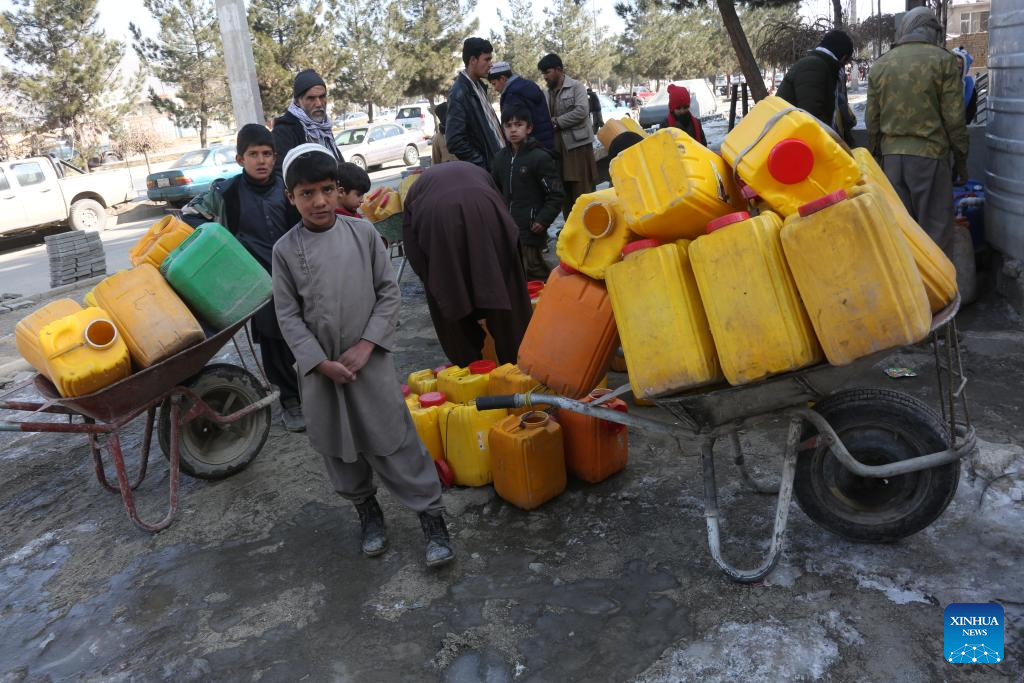
Afghan children wait to get water in Kabul, the capital of Afghanistan, Feb. 8, 2024. Climate change and frequent years of drought have deprived 21 million Afghans, almost half of Afghanistan's population, of access to potable water, Deputy Head of National Environment Program Agency (NEPA) Abdul Salam Haqqani said.
Afghanistan has been experiencing years of drought, which led to a recession of underground water including in the national capital Kabul, as major parts of some 6 million people of the city have been facing extreme water scarcity. (Photo by Saifurahman Safi/Xinhua)
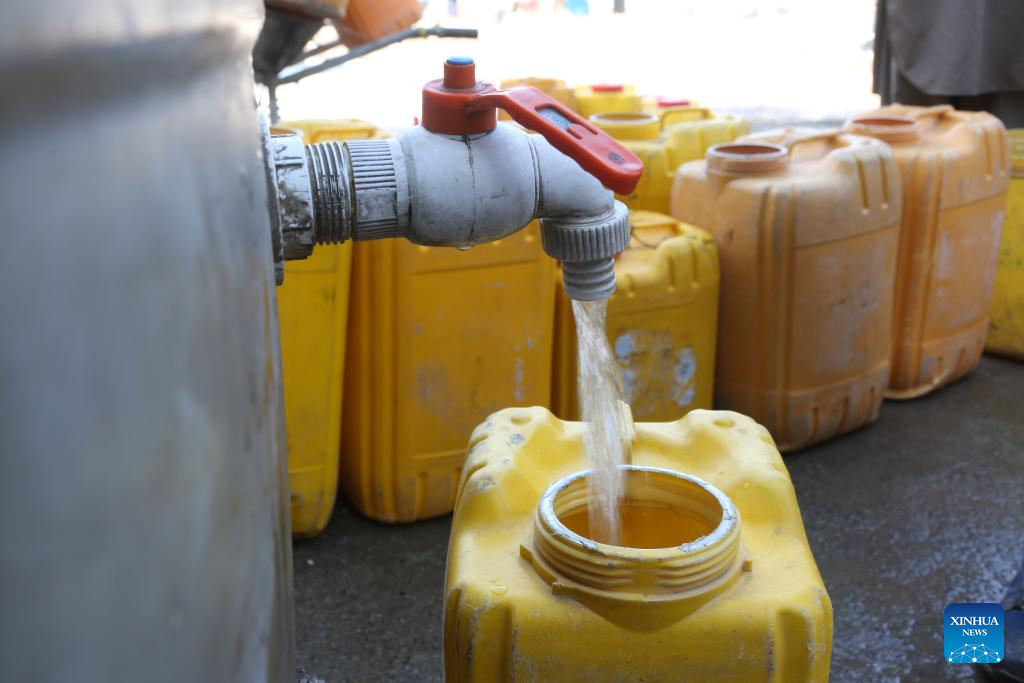
This photo taken on Feb. 8, 2024 shows a water tank in Kabul, the capital of Afghanistan. Climate change and frequent years of drought have deprived 21 million Afghans, almost half of Afghanistan's population, of access to potable water, Deputy Head of National Environment Program Agency (NEPA) Abdul Salam Haqqani said.
Afghanistan has been experiencing years of drought, which led to a recession of underground water including in the national capital Kabul, as major parts of some 6 million people of the city have been facing extreme water scarcity. (Photo by Saifurahman Safi/Xinhua)
